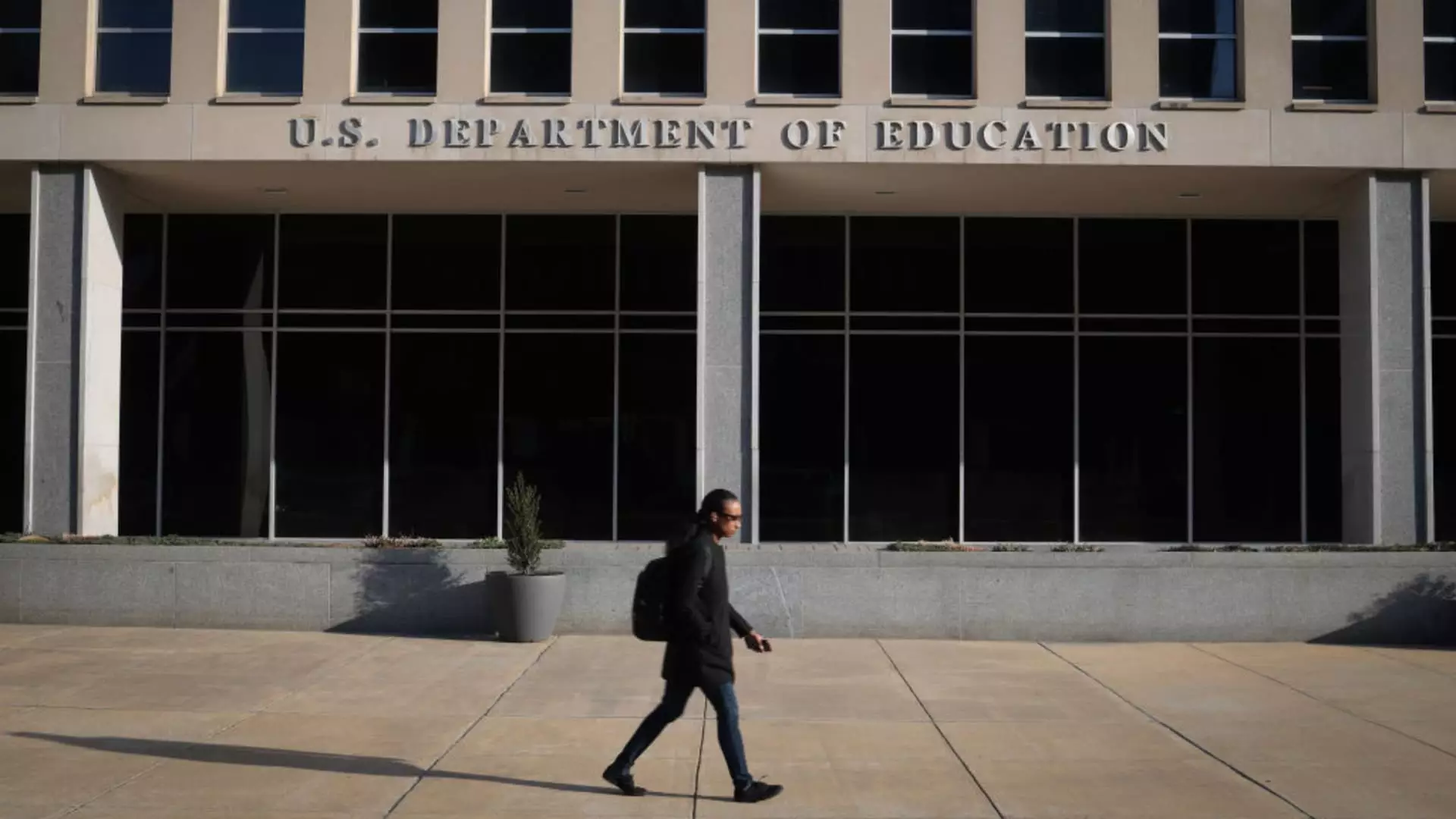In a striking move that epitomizes governmental irresponsibility, the American Federation of Teachers (AFT) has taken the U.S. Department of Education to court, challenging its abrupt withdrawal of income-driven repayment (IDR) plan applications. This decision directly impacts over 12 million borrowers who rely on these plans to manage their student loans effectively. The situation reflects a systematic failure to prioritize the financial well-being of working-class Americans who have depended on education as a pathway to better opportunities.
Historically, IDR programs were instituted in the 1990s to alleviate the burden on borrowers by tying monthly payments to income levels. This approach was designed to make the repayment process more manageable, enabling borrowers to continue contributing to the economy rather than being bogged down by insurmountable debt. Yet, the recent shifts orchestrated by the Trump administration not only halt progress made in these programs but actively work against the interests of those striving to achieve financial stability through education.
The Politics of Student Debt Relief
AFT President Randi Weingarten rightfully decries the administration’s actions, arguing that it is tantamount to “freezing” the nation’s student loan system. Such terminology underscores the chilling effect this has on millions who are already juggling the complexities of modern-day financial realities. The Biden administration’s attempt to introduce a new IDR plan—dubbed SAVE (Saving on a Valuable Education)—was dealt a blow by a ruling from the 8th U.S. Circuit Court of Appeals. However, rather than refining the application processes to comply with the ruling, the Education Department decided to halt all IDR applications, leaving many borrowers stranded without options.
This maneuver highlights a troublesome trend in education policy, wherein the government seems more preoccupied with political maneuvering than with the pressing needs of its citizens. Financial expert Mark Kantrowitz’s assessment of the crippling number of affected borrowers points to the profound implications of this decision. The idea that political whims could determine the financial futures of millions is both alarming and unacceptable.
The Human Impact of Policy Decisions
The fallout from this debacle extends beyond mere numbers. Mike Pierce, executive director of the Student Borrower Protection Center, has generated a call to action, illuminating how borrowers are particularly vulnerable amid rising economic challenges. The lack of access to manageable repayment plans makes it harder for individuals to keep up with payments, which not only affects personal finances but ripples through the economy.
In a time when the need for progressive policies supporting education and debt relief is paramount, the administration’s actions echo a widespread disregard for the struggles of lower and middle-class families. Citizens are grappling with escalating costs of living while simultaneously facing stagnant wages. When the systems designed to assist them, like the IDR plans, are undercut by political stratagems, it becomes increasingly clear that equity in education remains an elusive dream.
The chilling reality is that the current policies threaten not just financial futures but also the foundational belief that education can truly serve as a great equalizer. By stymying the growth of affordable repayment options, this government has slashed a vital lifeline to millions, leaving them to navigate an already treacherous financial landscape alone.


Leave a Reply